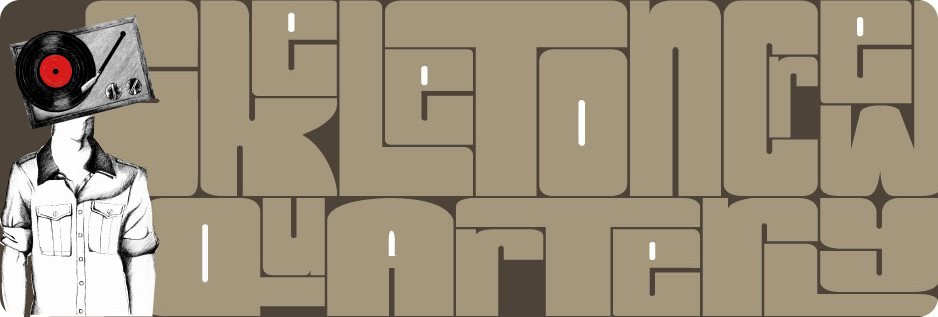
Let the Blind Lead Those Who Can See But Cannot Feel
Atlas Sound
Kranky Records.
SCQ Rating: 85%
Hard to believe that twelve months ago, Bradford Cox was virtually unknown. Beyond the tiny circle of Atlanta-based fans who may have picked up debut Turn It Up Fa**ot, Deerhunter sent shockwaves through the indie-music world with the release of Cryptograms. Its subsequent tour only energized the hype further as fans, bloggers and critics alike met the voice behind Deerhunter’s deafening drones. Equal parts defiant, confrontational, fey and withdrawn, Cox became the posterboy for America’s suburban angst. He was too willingly deranged to be considered a mere misfit, and too unpredictable to be labeled. To put it best, it was inevitable that such an explosive personality would put out a solo album, and after the band released the Fluorescent Grey EP, Cox set out on his own.
Little did we know at the time, that flying solo would also be returning to form. Cox has been recording as Atlas Sound for over a decade, singing over cheap four tracks and building static from tape hisses. Suffering from Marfan’s Syndrome and bedridden for seasons at a time, Cox had no shortage of time during his teenage years to experiment with recorded sound, and he likely views Let the Blind Lead Those Who Can See But Cannot Feel as a long-awaited credit roll to all those tumultuous years demoing.
Being that his moniker is so personal, these intensely raw lyrics should be expected. The family-archive tape of ‘Ghost Story’, which nearly concaves before blurring into electronic waves, describes the life of a ghost who found comfort in isolation, discovered that scaring people could be fun, and eventually returns to haunt the walls that housed his death. The following thirteen songs all breathe within that vaporous premise, whether lyrically (those drowned by their love in ‘River Card’, the isolated loneliness of ‘Quarantined’ and ‘On Guard’) or sonically, where each song is threatened by or living in dense ambience. Even Cox’s voice rarely leaves a ghostly register, speaking over atmospheric passages without rhyme or rhythm, allowing his voice to simply haunt the record’s skeleton.
Although most every instrument is heavily treated enough to make this an obscurely electronic record, Let the Blind… never stagnates. ‘Recent Bedroom’ wears its guitars on its sleeve, offering a slo-mo shoegaze-riff that burrows itself into the front yard where Cox stands, unable to cry. ‘Winter Vacation’ thrives on a soft techno beat that is used to genius effect, while ‘Ativan’s R&B percussion sounds lifted from the most drug-addled 50s recording never released. This is headphone music for swimming heads and bodies lying still.
With his Atlas Sound tour in full swing, Cox has already commenced “Healing Music”; a project that aims to provide original songs for people who are troubled on a first-come-first-serve basis. It’s an undertaking that could occupy the rest of his life, but if Let the Blind… is any indication of music’s healing power, Bradford Cox is the man for the job.
Listen to Atlas Sound here or here.























